Concussion Symptoms should never be ignored
Even if you have just one sign on the list, concussion symptoms should never be ignored. At Radius TBI in Ft. Lauderdale, Tampa, and Orlando, Florida, individuals who have suffered head injuries have access to specialized integrated medical care services that prioritize patient well-being and recovery.
Understanding Signs and Symptoms of Concussions: The Basics
Concussions, often referred to as mild traumatic brain injuries (mTBI), can significantly impact individuals’ lives. These injuries, commonly caused by head trauma, require careful attention and comprehensive medical care to ensure proper diagnosis, treatment, and rehabilitation.
What is a Concussion?
A concussion is a type of traumatic brain injury caused by a blow to the head or body, a fall, or another injury that jars or shakes the brain inside the skull. Concussions are not usually life-threatening, but their effects can be serious and long-lasting.
Concussion Symptoms Checklist
No matter how mild your symptoms may seem, they can still put you at risk for long-term health issues. Consulting a neurologist for a comprehensive neurological evaluation is essential.
Common Concussion Symptoms
Headache: Persistent or worsening headaches following a head injury can indicate a concussion.
Dizziness and Balance Issues: Feeling off-balance, experiencing vertigo, or having difficulty maintaining stability can be signs of a concussion.
Cognitive Difficulties: Problems with memory, concentration, and thinking clearly are often observed in individuals with concussions.
Sensitivity to Light and Noise: An increased sensitivity to light and noise is a common concussion symptom.
Sleep Disturbances: Insomnia, excessive fatigue, or changes in sleep patterns may be indicators of a concussion.
Emotional Changes: Mood swings, irritability, anxiety, and depression can also be symptoms of a concussion.
Nausea and Vomiting: Feeling sick to your stomach or vomiting shortly after a head injury can be a sign of a concussion.
Slurred Speech: Difficulty speaking clearly can indicate a more severe brain injury.
Fatigue: Unusual tiredness or a lack of energy can persist for days or weeks after the initial injury.
The Importance of Early Detection
Recognizing and addressing concussion symptoms promptly is essential for a successful recovery. Ignoring these symptoms can lead to prolonged recovery times and increased risk of further injury. If you suspect a concussion, it’s crucial to seek medical attention immediately.
IntegratedMedical Care for TBI Patients
At Radius TBI in Ft. Lauderdale and Tampa, Florida, specialized medical facilities offer integrated care for individuals who have suffered from head injuries, including concussions.
What is Integrated Medical Care?
Integrated medical care is a comprehensive approach that combines various healthcare professionals to provide coordinated and personalized treatment plans for patients.
Components of Integrated Medical Care
Multidisciplinary Team: A team of healthcare professionals, including neurologists, physiatrists, neuropsychologists, physical therapists, and occupational therapists, collaborate to evaluate and manage the patient’s condition.
Accurate Diagnosis: Through a combination of advanced diagnostic techniques such as imaging studies, neurocognitive testing, and thorough medical evaluations, an accurate diagnosis of the concussion and any associated injuries can be established.
Individualized Treatment: Based on the patient’s specific needs, an individualized treatment plan is developed, addressing symptoms, promoting healing, and maximizing functional recovery. This may involve physical therapy, occupational therapy, medication management, cognitive rehabilitation, and pain management strategies.
Rehabilitation and Recovery: Integrated medical care emphasizes comprehensive rehabilitation programs to restore optimal functioning and improve TBI patients’ quality of life. This may involve physical, cognitive, and emotional therapies tailored to each patient’s unique requirements.
Ongoing Support: Integrated medical care recognizes the importance of continuing support to patients throughout their recovery journey. This includes regular follow-up appointments, access to counseling services, and educational resources for patients and their families.
The Role of Radius TBI in Concussion Care
At Radius TBI, we understand the complexities of traumatic brain injuries and provide a comprehensive, integrated approach to care.
Our Commitment to Patients
Our dedicated team of professionals is committed to offering the highest quality of care for patients with concussions and other TBIs. We focus on:
Early Detection and Accurate Diagnosis: Utilizing state-of-the-art diagnostic tools to ensure timely and precise identification of concussions.
Personalized Treatment Plans: Tailoring treatments to meet the specific needs of each patient, promoting optimal recovery and quality of life.
Comprehensive Rehabilitation: Offering a range of therapeutic services designed to address the physical, cognitive, and emotional aspects of recovery.
Continuous Support: Providing ongoing care and resources to support patients and their families throughout the recovery process.
Facts and Statistics About Concussions
Understanding the prevalence and impact of concussions can help highlight the importance of proper care and treatment.
Prevalence: According to the Centers for Disease Control and Prevention (CDC), an estimated 1.6 to 3.8 million sports- and recreation-related concussions occur in the United States each year.
Risk Factors: Children and adolescents are at higher risk for concussions, with sports and physical activities being common causes.
Long-term Effects: While many individuals recover fully from a concussion, some may experience persistent symptoms known as post-concussion syndrome, which can last for weeks, months, or even longer.
Repeat Injuries: Sustaining multiple concussions can have cumulative effects on brain health, increasing the risk of long-term cognitive and neurological issues.
Free! Concussion Signs and Symptoms Checklist
For injured workers and anyone who has experienced head trauma, recognizing the signs of a concussion is critical. At Radius TBI, we offer a free concussion symptoms checklist to help individuals identify potential symptoms and seek appropriate medical care.
How to Use the Concussion Symptoms Checklist
- Download the Checklist: Visit our website to download your free concussion symptoms checklist.
- Monitor Symptoms: Keep track of any symptoms you experience following a head injury.
- Seek Medical Attention: If you identify any symptoms on the checklist, consult with a healthcare professional for a comprehensive evaluation.
- Follow-up: Stay in touch with your medical provider to monitor your recovery and address any ongoing symptoms.
Concussions and other traumatic brain injuries require specialized attention and integrated medical care for successful recovery. In Ft. Lauderdale and Tampa, Florida, individuals who have suffered head injuries can benefit from the comprehensive services offered by medical facilities specializing in TBI care.
By understanding concussion symptoms and seeking integrated medical care, patients can receive the necessary support and treatment to promote healing, restore function, and enhance their overall well-being.
If you or someone you know experiences a head injury and displays symptoms of a concussion, it is crucial to seek immediate medical attention and consult with healthcare professionals who specialize in treating traumatic brain injuries.
References
- Centers for Disease Control and Prevention (CDC). (n.d.). Traumatic Brain Injury & Concussion. Retrieved from CDC.
- Mayo Clinic. (2022). Concussion. Retrieved from Mayo Clinic.
- American Association of Neurological Surgeons (AANS). (n.d.). Concussion. Retrieved from AANS.
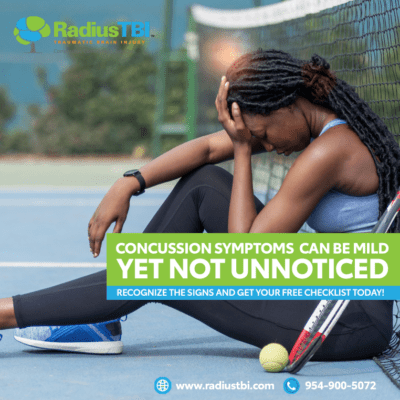
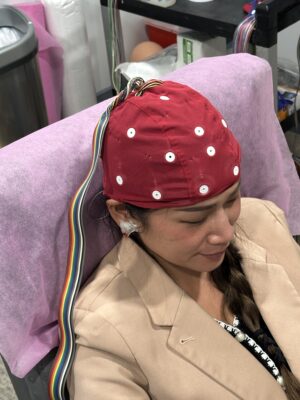
In the world of neuroscience, one of the advanced tools used to understand brain function is the Quantitative Electroencephalogram (QEEG), often referred to as brain mapping. But who interprets these intricate brain maps, and why is their expertise crucial?
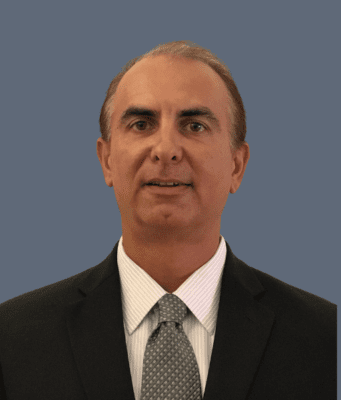
Meet Our No.1 Best Neuropsychologist in Tampa, FL Location
At Radius TBI, we pride ourselves on providing exceptional care for individuals suffering from traumatic brain injuries (TBI) and concussions. Our integrated medical team in Tampa, FL, includes some of the most respected and experienced professionals in the field, ensuring comprehensive and personalized care for
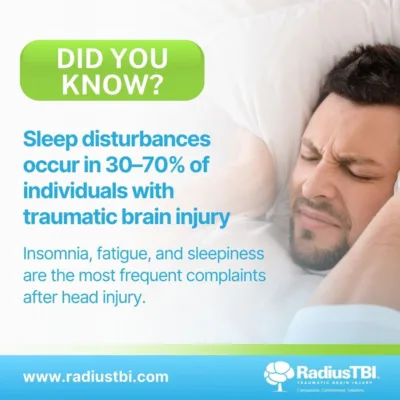
Did you know? Dealing with a traumatic brain injury (TBI) often means navigating a range of complications, one of the most prevalent being sleep disturbances. Surprisingly, 30-70% of individuals with a TBI experience some form of sleep disruption according to a study published on NCBI.
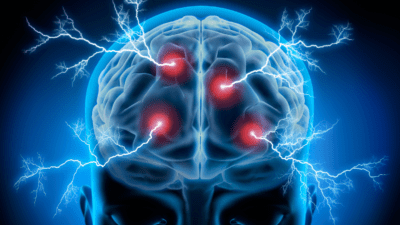
Understanding Routine EEG, QEEG, and Ambulatory EEG Tests
EEG, QEEG, and Ambulatory EEG are distinct forms of electroencephalography, each serving unique purposes in the diagnosis and monitoring of neurological conditions.
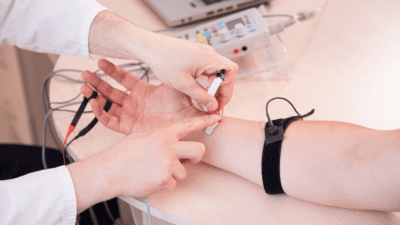
A Deep Dive into Electromyography (EMG Test): Decoding the Language of Muscles and Nerves
Electromyography (EMG) is a diagnostic procedure that plays a crucial role in unraveling the intricacies of the neuromuscular system. By measuring the electrical activity within muscles and the nerves controlling them, EMG provides valuable insights for the diagnosis and management of various neuromuscular disorders.
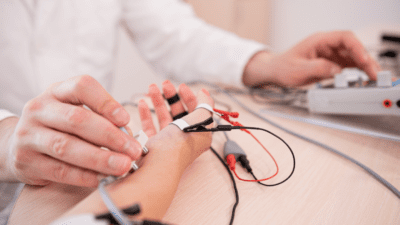
Precise Diagnostics, Proactive Care: Nerve Conduction Velocity NCV Testing Solutions in Florida
The Nerve Conduction Velocity (NCV) test is a diagnostic procedure designed to assess the speed at which electrical impulses travel along nerves. This test is an integral component of neurophysiological studies, providing crucial insights into the functioning of the peripheral nervous system.

Your Comprehensive Guide to Seeking the Right Car Accident Injury Doctors in Florida
Car accidents can be life-altering events, leaving victims with not only physical injuries but also emotional trauma. It’s crucial to take the right steps after a car accident, especially if you suspect internal brain injury or concussion. In Florida, where roadways are bustling, understanding the
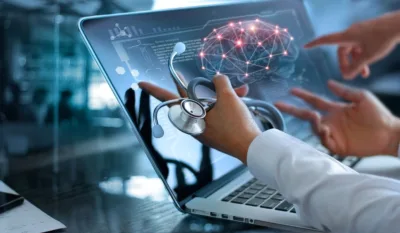
New Revolutionizing Mild Cognitive Impairment Research
Our groundbreaking study on Mild Cognitive Impairment (MCI) is reshaping the landscape of neurological research. Dive into the complexities of the brain as we unveil the potential of the Oculomotor, Vestibular, and Reaction Time (OVRT) assessment in providing objective insights into MCI.

